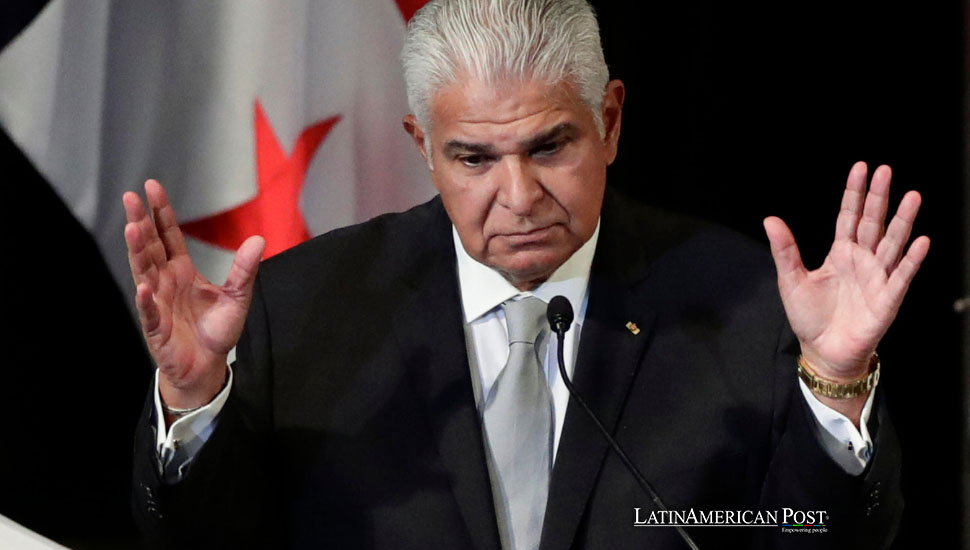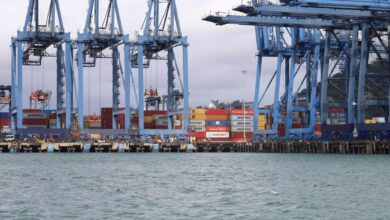Panama’s Immigration Policy Shift May Have Wide Repercussions

Panama’s President-elect José Raúl Mulino plans to shut down a key migration route through the Darien jungle. This move could significantly alter migration patterns from Latin America to the U.S.
In a move poised to reshape migration dynamics in the Americas, Panama’s President-elect José Raúl Mulino has announced plans to close a popular migration route through the Darien jungle. More than half a million people used this route last year to reach the United States. This drastic shift in policy marks a significant departure from Panama’s previous approach, which facilitated the swift transit of migrants across its territory. For instance, the closure of the Darien Gap route could lead to a significant increase in maritime migration, as migrants are forced to seek alternative, potentially more dangerous, routes.
The Darien Gap, a notorious stretch of dense jungle that spans the border between Colombia and Panama, has historically served as one of Latin America’s most challenging but used migratory paths. The route’s popularity surged in recent years due to escalating crises in countries like Venezuela and parts of Central America, driving hundreds of thousands to undertake the perilous journey north in search of better opportunities.
The Role of Organized Crime and External Pressures
The migrant trail through the Darien Gap has been a tale of human endurance and a lucrative opportunity for organized crime. With the rise of visa restrictions by countries like Mexico, under U.S. pressure to curb migration, the Darien route became an alternative for many, inadvertently boosted by criminal networks facilitating these dangerous journeys for profit.
Mulino’s intent to close this route reflects a growing sentiment in Panama—and indeed across Latin America—that the unregulated movement of people has spiraled out of control, posing security risks and humanitarian crises. His approach, which he describes as philosophical rather than purely logistical, involves deterring migration by making Panama a less attractive and more formidable passage through immediate deportation strategies.
The Reality of Enforcement and Its Challenges
However, the feasibility of such a sweeping policy change is under intense scrutiny. The Darien Gap is a remote and loosely governed region, effectively enforcing any new immigration policy that is exceptionally challenging. Experts like Julio Alonso, a Panamanian security expert, question the operational viability of Mulino’s plan given the region’s complex geographical and social dynamics.
Achieving any significant reduction in migration through the Darien would require extensive cooperation with neighboring Colombia and potentially other transit countries. Without a concerted regional strategy, unilateral actions by Panama could simply push migratory routes into even more dangerous territories, such as maritime paths known for their high risk of accidents and fatalities. For example, Colombia, as the country from which many migrants begin their journey, could play a crucial role in managing the migration flow and ensuring the safety of migrants.
Broader Impact on Latin America’s Migration Issues
Mulino’s policy, if implemented, could also have broader implications for Latin America’s approach to migration. The continent has long struggled with managing migration flows driven by economic disparity, violence, and political instability. Closing a significant route like the Darien Gap could force a reevaluation of how nations collectively manage and mitigate the causes and consequences of migration.
Humanitarian organizations and experts have raised concerns about the ethical implications of denying safe passage to migrants. The United Nations’ International Organization for Immigration warns that without legal and safe routes, migrants are more likely to turn to dangerous alternatives, increasing the risk of exploitation and abuse.
Economic and Social Costs
The economic and social costs of a closed migration route could be substantial. On the one hand, reducing illegal migration could alleviate some pressure on Panama’s social services and potentially reduce crime. However, the potential for increased deaths and human rights abuses could tarnish Panama’s international standing and strain relations with key partners, including the United States, thereby highlighting the broader impact of this policy shift.
Also read: José Raúl Mulino: Panama’s Controversial Path Forward
As José Raúl Mulino prepares to take office on July 1, the world watches closely to see how his administration will navigate these complex issues. The closure of the Darien Gap migration route could reduce the number of migrants reaching the U.S. from Latin America, but at what cost? The effectiveness and humanity of his policies will not only define his presidency but also set precedents for how Latin America handles one of its most pressing challenges in the years to come. This policy shift could either be a model for regional cooperation on migration management or a cautionary tale of unilateral action with unintended consequences.




